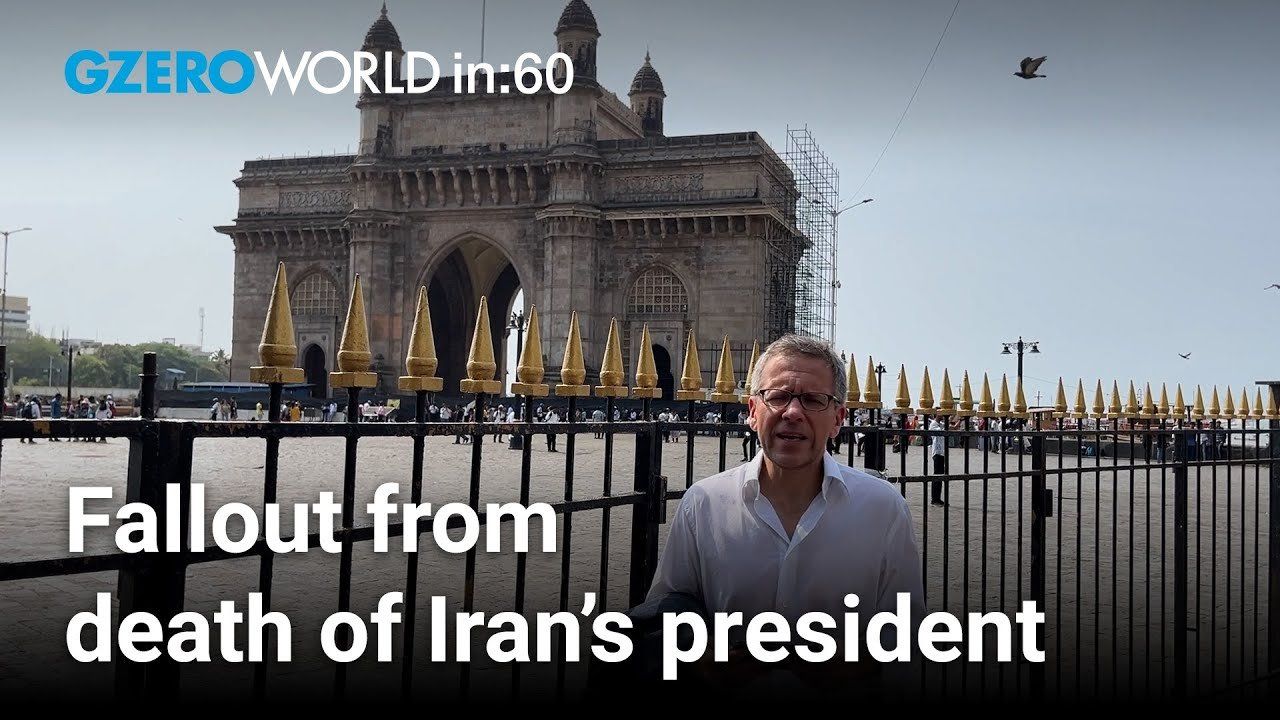
Ian Bremmer shares his insights on global politics this week on World In :60.
What's the fallout from the death of Iran's president?
Not that much in the near term because he doesn't actually run the country. There will be a new election in 50 days. It'll be a hardline or a loyalist to the Supreme Leader. Almost no one will turn out to vote because people don't see this as legitimate. But the country is still a strong and repressive theocracy and that is not changing with or without President Raisi.
How will allies respond to Zelensky urging them for direct involvement in the war?
We're seeing more of this in part because you have the Americans, the French, increasingly talking about the fact that they might want to send people, boots on the ground, to engage in training. As soon as Zelensky hears that, especially because his troops aren't doing so well on the ground right now, he wants maximum support from everyone he can get in NATO. Also, if you want to be in NATO, that means you've got to have trip wires, that means that NATO has to be involved if the Ukrainians are losing more land. This helps with that. But all of this means that the upcoming 75th anniversary of the NATO summit in Washington in July is going to be a really tough one to navigate. Zelensky wants a lot more than NATO allies are prepared to give him.
Is India's recent rise in Russian oil imports a concern to the West?
Not really. The Indians are actually importing more oil from Russia than China, even though, overall, China's trade is going up faster. But American policy, NATO policy is, squeeze the Russians but not so much that it hurts the Americans and the Europeans, it doesn't hurt their economy that much. What that means is that the Russians continue to export oil, and gas, and uranium, and food, and fertilizer. They basically reveal preferences that the United States isn't prepared to do all that much ultimately for Ukraine, especially not if the American economy takes a hit. That does, of course, matter when you look at what's happening with Russia around the world.
That's it for me. I'll talk to you all real soon.